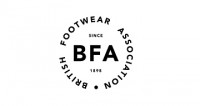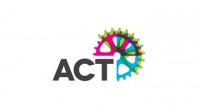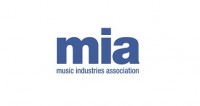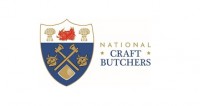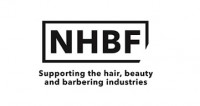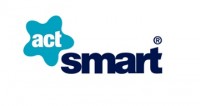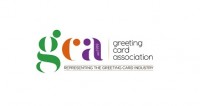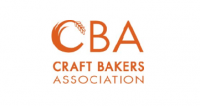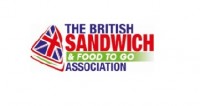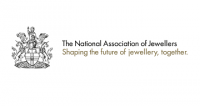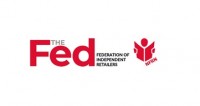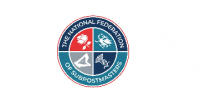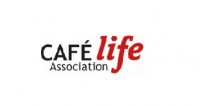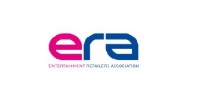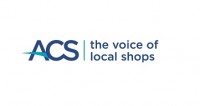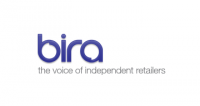The Government's latest COVID-19 resources for retailers
Posted on in Business News, Cycles News, Political News
 ActSmart and the ACT are remaining open during this period of uncertainty for continuity, with all services continuing to be available to members.
ActSmart and the ACT are remaining open during this period of uncertainty for continuity, with all services continuing to be available to members.
If this changes in any way it will be announced on our website and social media pages, as well as members being alerted via email.
Stay at home guidance has been issued by the Government and is available here
This page contains resources provided by IRC member ACS for retailers with regard to the developing situation on COVID-19 (Coronavirus).
The Government has published its coronavirus action plan which provides information on what further action can be expected from the Government in response to coronavirus.
The action plan sets out what is known about the virus and the disease it causes, how the government has planned for an infectious disease outbreak, the actions taken so far in response to the coronavirus outbreak, what the government plan to do next depending on the course of the outbreak, and the role that the public can play in supporting this response, now and in the future.
What to do if a member of staff or the public with suspected COVID-19 has recently been in your workplace
For contacts of a suspected case in the workplace, no restrictions or special control measures are required while laboratory test results for COVID19 are awaited. In particular, there is no need to close the workplace or send other staff home at this point. Most possible cases turn out to be negative. Therefore, until the outcome of test results is known there is no action that the workplace needs to take.
What to do if a member of staff or the public with confirmed COVID-19 has recently been in your workplace
Closure of the workplace is not recommended.
The management team of the office or workplace will be contacted by the PHE local Health Protection Team to discuss the case, identify people who have been in contact with them and advise on any actions or precautions that should be taken.
A risk assessment of each setting will be undertaken by the Health Protection Team with the lead responsible person. Advice on the management of staff and members of the public will be based on this assessment.
The Health Protection Team will also be in contact with the case directly to advise on isolation and identifying other contacts and will be in touch with any contacts of the case to provide them with appropriate advice.
Advice on cleaning of communal areas such as offices or toilets will be given by the Health Protection Team and is outlined later in this document.
When individuals in the workplace have had contact with a confirmed case of COVID-19
If a confirmed case is identified in your workplace, the local Health Protection Team will provide the relevant staff with advice. These staff include:
- any employee in close face-to-face or touching contact
- talking with or being coughed on for any length of time while the employee was symptomatic
- anyone who has cleaned up any bodily fluids
- close friendship groups or workgroups
- any employee living in the same household as a confirmed case
Contacts are not considered cases and if they are well they are very unlikely to have spread the infection to others:
- those who have had close contact will be asked to self-isolate at home for 14 days from the last time they had contact with the confirmed case and follow the home isolation advice sheet
- they will be actively followed up by the Health Protection Team
- if they develop new symptoms or their existing symptoms worsen within their 14-day observation period they should call NHS 111 for reassessment
- if they become unwell with cough, fever or shortness of breath they will be tested for COVID-19
- if they are unwell at any time within their 14-day observation period and they test positive for COVID-19 they will become a confirmed case and will be treated for the infection
Staff who have not had close contact with the original confirmed case do not need to take any precautions and can continue to attend work.
Certifying absence from work
By law, medical evidence is not required for the first 7 days of sickness. After 7 days, it is for the employer to determine what evidence they require, if any, from the employee. This does not need to be a fit note (Med 3 form) issued by a GP or other doctor.
Your employee will be advised to isolate themselves and not to work in contact with other people by NHS 111 or PHE if they are a carrier of, or have been in contact with, an infectious or contagious disease, such as COVID-19.
We strongly suggest that employers use their discretion around the need for medical evidence for a period of absence where an employee is advised to self-isolate due to suspected COVID-19, in accordance with the public health advice being issued by the government.
Advice for staff returning from travel anywhere else in the world within the last 14 days
Currently, there are minimal cases outside the listed areas and therefore the likelihood of an individual coming into contact with a confirmed case is extremely low.
These staff can continue to attend work unless they have been informed that they have had contact with a confirmed case of COVID-19
If individuals are aware that they have had close contact with a confirmed case of COVID-19 they should contact NHS 111 for further advice.
The latest country information is available on the NaTHNac Travel Pro website.
Handling post, packages or food from affected areas
Employees should continue to follow existing risk assessments and safe systems of work. There is no perceived increase in risk for handling post or freight from specified areas.
Cleaning offices and public spaces where there are suspected or confirmed cases of COVID-19
Coronavirus symptoms are similar to a flu-like illness and include cough, fever, or shortness of breath. Once symptomatic, all surfaces that the person has come into contact with must be cleaned including:
- all surfaces and objects which are visibly contaminated with body fluids
- all potentially contaminated high-contact areas such as toilets, door handles, telephones
Public areas where a symptomatic individual has passed through and spent minimal time in (such as corridors) but which are not visibly contaminated with body fluids do not need to be specially cleaned and disinfected.
If a person becomes ill in a shared space, these should be cleaned using disposable cloths and household detergents, according to current recommended workplace legislation and practice.
Budget 2020
The following information is provided by the Department for Business, Energy and Industrial Strategy:
In the Budget the Chancellor announced a package of measures to provide support for public services, individuals and businesses affected by Covid-19. The UK is extremely well prepared for these types of outbreaks and will continue to take all necessary precautions to protect the public, including engaging with key industry partners to discuss their preparedness planning. To ensure the impact on businesses is minimised, the following measures were announced:
- A new Coronavirus Business Interruption Loan Scheme, delivered by the British Business Bank, will enable businesses with a turnover of no more than £41m to apply for a loan of up to £1.2m, with the Government covering up to 80% of any losses with no fees. This will unlock up to £1 billion pounds to protect and support small businesses.
- For businesses with fewer than 250 employees, the cost of providing 14 days of statutory sick pay per employee will be refunded by the Government in full. This will provide 2 million businesses with up to £2bn to cover the costs of large-scale sick leave.
- A dedicated helpline has been set up to help businesses and self-employed individuals in financial distress and with outstanding tax liabilities to receive support with their tax affairs. Through this, businesses may be able to agree a bespoke Time to Pay arrangement.
- There will be a £3,000 cash grant to 700,000 of the smallest businesses, delivered by Local Authorities, and worth a total of £2bn. Those eligible for SBRR and/or Rural Rate Relief are eligible for the £3,000 grant.
- Finally, the Government is temporarily increasing the Business Rates retail discount in England to 100% for 2020-21 for properties below £51,000 rateable value. Nearly half of all business properties will not pay a penny of business rates.
The Bank of England have also announced a comprehensive package of measures to help UK businesses and households bridge across the economic disruption that is likely to be associated with COVID-19. Interest rates have been reduced from 0.75% to 0.25% and additional funding will be available for banks to increase lending, especially to SMEs.
Government Guidance for Employers, Employees and Businesses
The Government's official guidance is available here. It includes information on the following areas:
- How to help prevent spread of all respiratory infections including COVID-19
- What to do if someone with suspected or confirmed to have COVID-19 has been in a workplace setting
- What advice to give to individuals who have travelled to specific areas, as outlined by the Chief Medical Officer (full list is available here)
- Advice for the certification of absence from work resulting from Covid-19
Hygiene and Safety In Store
ACS has Assured Advice available for retailers on food hygiene standards and practices in store, and the things that should be considered when offering a water refills service. These guides are available below:
Assured Advice - Food Safety and Hygiene
Assured Advice - Water Refills
Sick Pay
ACAS (the Advisory, Conciliation and Arbitration Service) has published guidance for employers and employees which states that it is good practice for employers to treat self-isolation as sick leave and follow their usual sick pay policy or agree for the time to be taken as holiday. However, ACAS has said that "there's no legal (statutory) right to pay if someone is not sick but cannot work because they have been told by a medical expert to self-isolate, have had to go into quarantine, are abroad in an affected area and are not allowed to travel back to the UK".
Useful links
If you have any other queries please contact us.




